Vinegar at the Time of Coronavirus
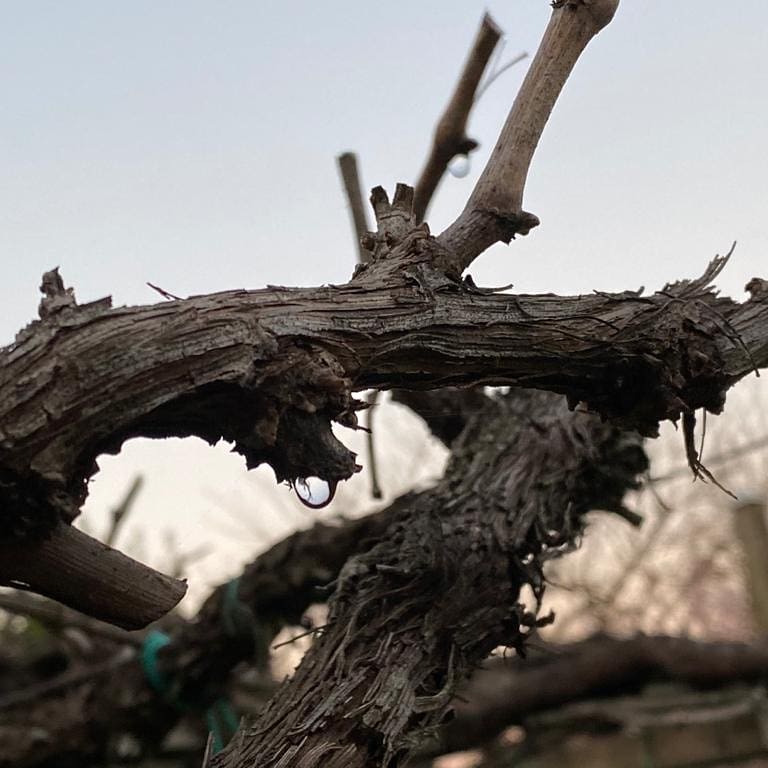
Insider’s Italy often books private visits with food artisans. One whom clients invariably say became a friend and revolutionized their understanding vinegar is Mariangela, the fifth generation owner of a small aceto balsamico company in Vignola, near Modena, Ca’ del Non.
Vignola is an area celebrated for its cherry trees and for small vineyards with grapes grown specifically for transformation into delicious, dark, concentrated, intensely flavored vinegars produced only in the province of Modena.

Emilia Romagna is one of the three regions most deeply affected by coronavirus. Modena in the last 24 hours has 150 new diagnosed cases with twelve dead.
Mariangela writes me : “Everything is, so to speak, fine in that we are healthy. At the moment that is the most important thing of all.
We are dividing our lives between home, the vinegar cantina and vineyard.
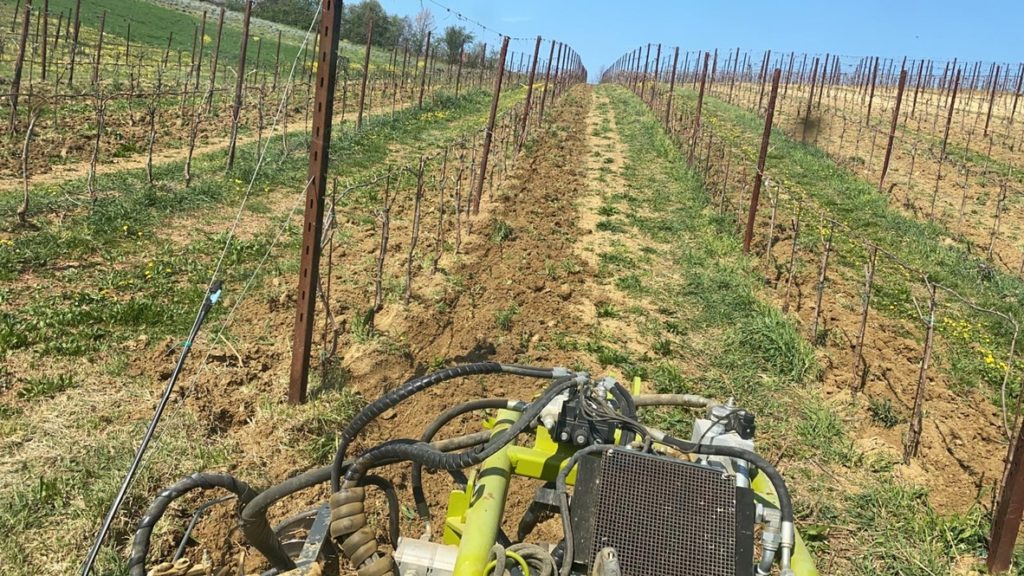
My brother continues the cultivation of our land. The country is closed down but the countryside is not, and this is of course fortunate.
The vinegars are all in the appropriate barrels, and soon we will start to bottle.
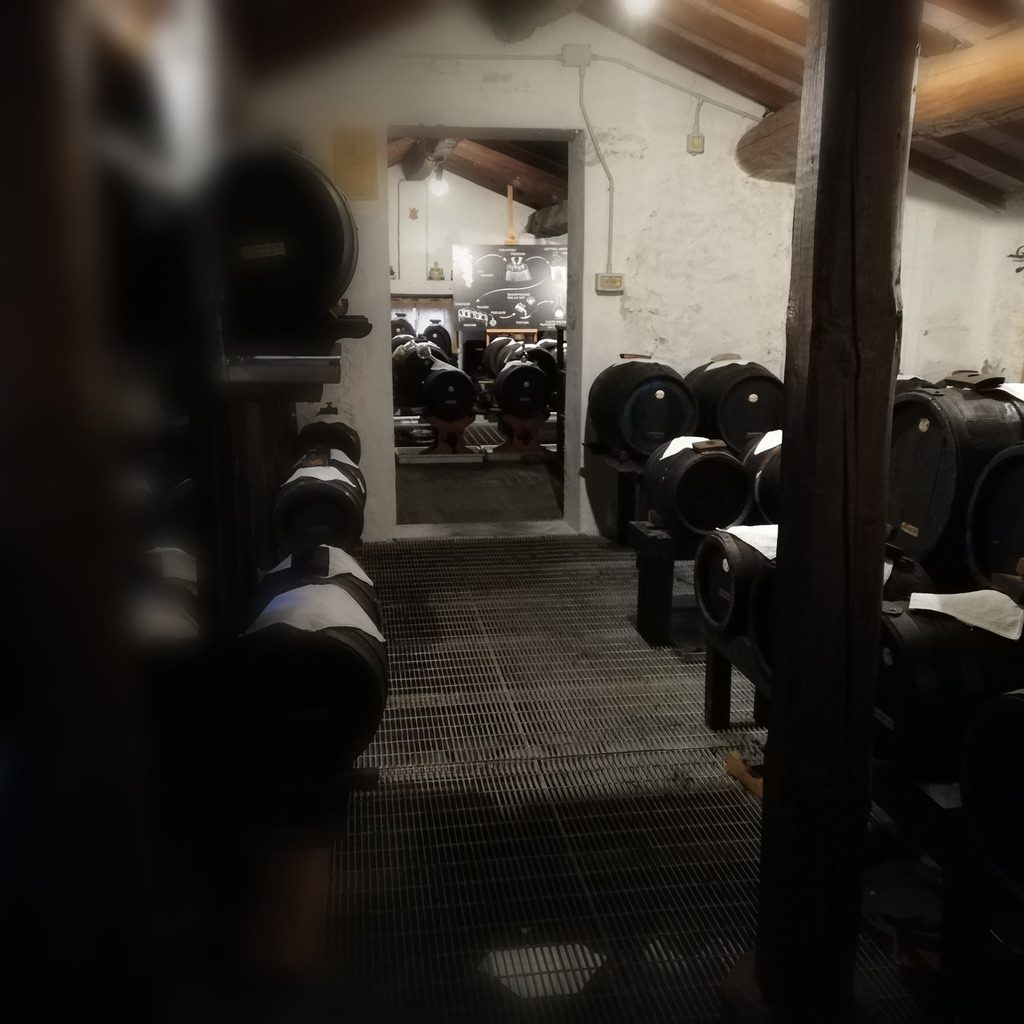
I’m in touch with our clients from all across the world. Many of them are also dear friends, and I want to know how they are and how they are protecting themselves.
Unfortunately in Italy we finally faced the facts much too late. This virus is a beast that you don’t mess with. At the moment the only way to limit its spread is to use social distancing, to be as far away from others as is possible.
From an economic point of view, this situation is difficult for everyone, but the priority at the moment is to remain healthy.
Most of my day is dedicated to my four children. I have been homeschooling for a month now, and have transformed myself into a full time, old fashioned country teacher working in a one-room schoolhouse. I have students of different ages all in the same class, as it was once upon a time : a five year old boy, a second grader, a third grader and a fifth grader. It is somewhat challenging.
We cook, we cook a lot. I am developing some new recipes with our traditional balsamico, and also our Saba and Balsamosaba condiments, and perfecting my pizza and focaccia.

Every day we take a walk in the garden … in this period of our lives, how much we are blessed by having the garden.
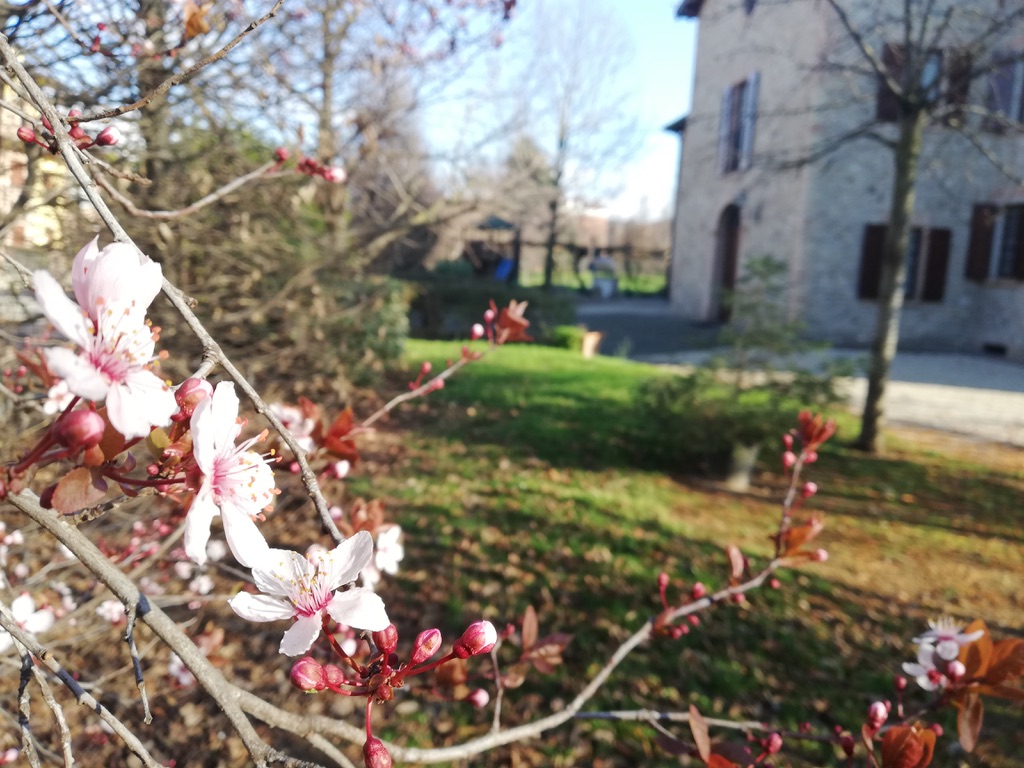
I am writing and designing a book for my youngest child, and making up a story all about him.
And I am thinking about what I can do to relaunch the business when all of this is over …
At the moment only my husband goes out to do the shopping, once or twice a week. He shops for our family, for my parents, for his parents. The baker brings us bread once a week, the greengrocer delivers vegetables… it’s all very strange!
With our friends and relatives scattered throughout Italy and the world we speak on the phone, use WhatsApp, make video calls, and are in touch much more often than usual so we can verify that all is in order. And that everyone is well.
We’re trying to tidy up our home, library, cellar and our archives.
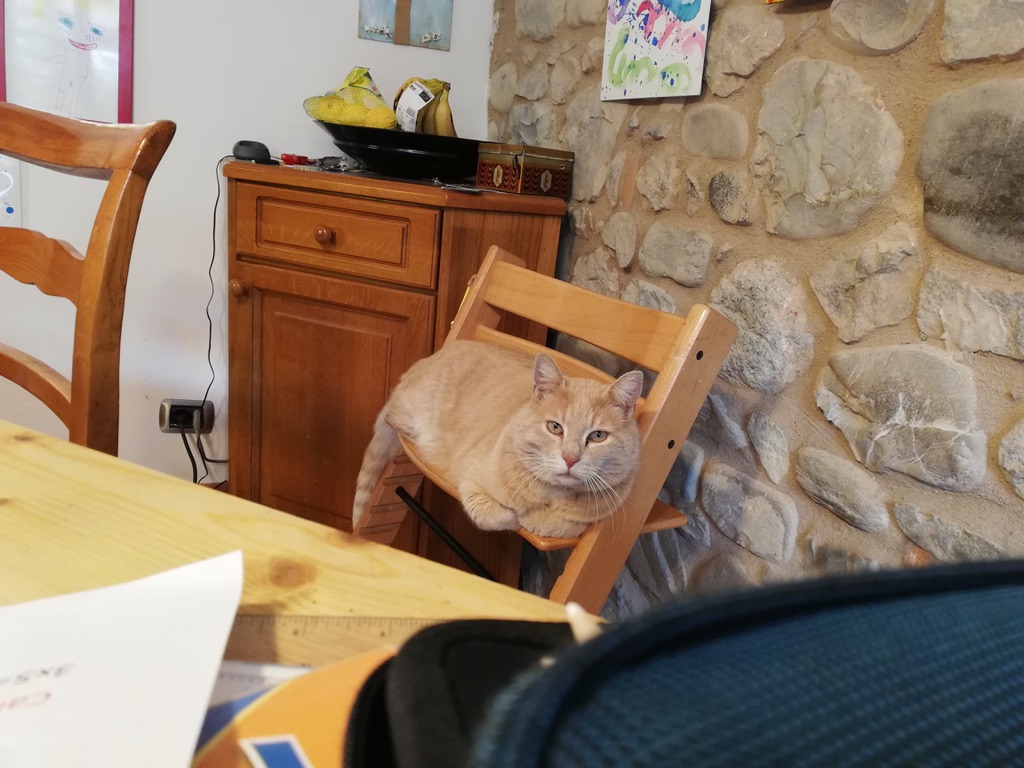
We read a lot. We read to the children, and we pray.
Last night I prepared a risotto with asparagus and made up a new recipe. I thought you might like it.
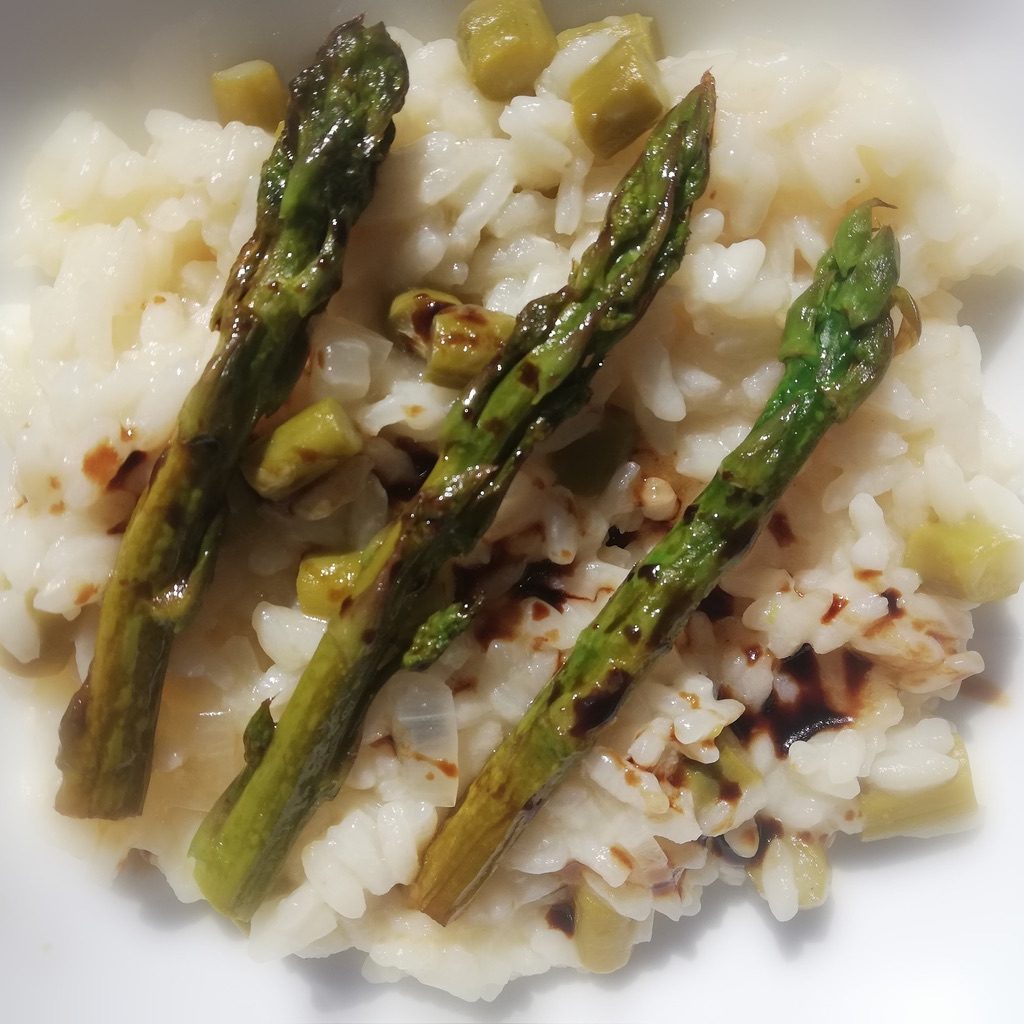
Risotto with Asparagus
500 grams of arborio rice
A bunch of asparagus
1 onion, finely chopped
300 ml of white wine
1900 ml of vegetable broth, warmed to a gentle simmer
1 pinch of chile flakes
1 pinch of thyme
50 grams of grated Parmigiano Reggiano
1 Tablespoon of Balsamosaba 3 (Mariangela’s sweet and sour condiment made with cooked grapes, fruity)
1 Tablespoon of Balsamosaba 6 (Mariangela’s sweet and sour condiment made with cooked grapes, aged in oak barrels, rounded acidity)
Traditional aceto balsamico, to finish the risotto
Extra virgin olive oil
Wash the asparagus, and remove any leggy portions. Cut off tips and set aside, and cut the stems into rounds. Prepare the risotto by sautéing the chopped onion in 2 Tablespoons of olive oil and when it softens and becomes slightly golden, add a generous pinch of thyme and the Balsamosaba 3. Stir, then add the asparagus pieces in rounds, stirring until the rice just begins to seem toasted. Add the white wine and when fully evaporated, ladle in the broth, only adding more when the previous batch is fully absorbed. Stir regularly. After roughly 20 minutes, taste for doneness. Off the heat, add the grated Parmigiano. Allow the dish to rest, with lid on, for five minutes, then add the asparagus tips which you have previously sautéed briefly with the Balsamosaba 6. Correct for salt, if needed, and finish with a few drops of traditional aceto balsamico.”

Meet Marjorie
Insider’s Italy is an experienced family business that draws on my family’s four generations of life in Italy. I personally plan your travels. It is my great joy to share with you my family’s hundred-year-plus archive of Italian delights, discoveries and special friends.
